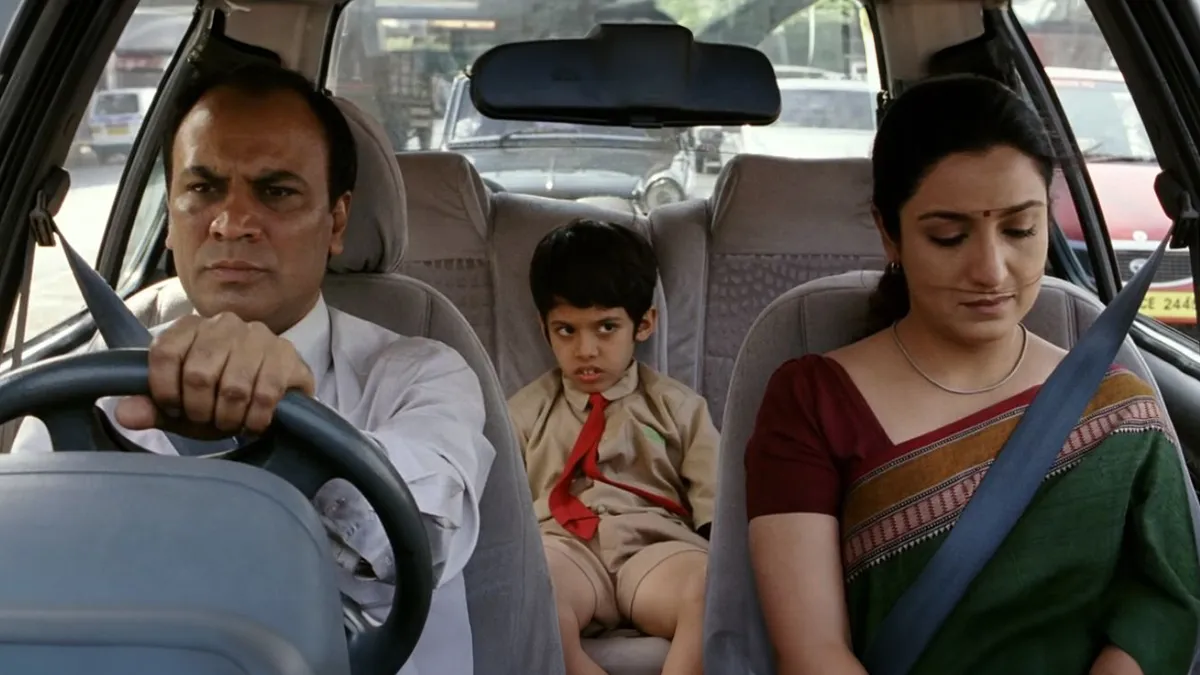
Indian society places family at its center, but this reverence often masks darker truths. While culture teaches us to prioritize parents above ourselves, some parent-child relationships become so toxic that healthy boundaries become impossible.
Bollywood has portrayed these difficult dynamics across decades of filmmaking. These portrayals help acknowledge a harsh reality - not all family relationships can be fixed or endured. The following films expose the dark side of parenthood through compelling storytelling.
Kamal Mehra (Anil Kapoor) and Neelam Mehra (Shefali Shah) demonstrate extreme sexist attitudes toward their daughter's capabilities. The parents refuse to consider letting their daughter lead the family business despite her qualifications.
Their toxic behavior extends further as they pressure her to remain in a failing marriage while discouraging her professional dreams. The Mehras represent parents who view daughters as burdens rather than assets, creating lasting psychological damage.
Mr. Narayan Shankar (Amitabh Bachchan) exhibits severe control issues that destroy his relationship with his daughter. He denies her the fundamental right to fall in love and choose her life partner.
This pattern reflects common behavior among controlling parents who act as dictators rather than guides. Shankar's extreme need to micromanage his daughter's emotions ultimately leads to tragic consequences.
Dhankor (Supriya Pathak) takes parental control to violent extremes when she discovers her daughter's (Deepika Padukone) forbidden romance. Her response involves cutting off her daughter's finger as punishment for loving someone from an enemy clan.
This brutal act represents parents who prioritize community honor over their children's happiness and safety. The punishment crushes the daughter's spirit and strips her of her capacity for joy.
Rama (Seema Biswas) demonstrates how internalized prejudices poison parent-child relationships. Her jealousy toward Poonam (Amrita Rao) stems from colorist beliefs about beauty and worth.
While Rama's behavior results from her own patriarchal conditioning, this doesn't excuse her treatment of both daughters. She reduces their entire value to skin color and forces artificial lightening treatments, passing trauma to the next generation.
Chaudhry Baldev Singh (Amrish Puri) treats his daughters as certificates of family honour rather than individual human beings. His rigid control over their lives reflects outdated patriarchal values.
Lajwanti Singh (Farida Jalal) enables this oppression by passing down the restrictions she herself faced. Both parents fail to recognize their daughters' autonomy and right to make personal choices.
The film exposes two forms of parental toxicity through academic pressure. Viru Sahastrabudhhe (Boman Irani) raises his children under immense pressure to pursue only high-status careers, such as medicine or engineering.
Mr Qureshi (Parikshit Sahni) forces his son Farhan (Madhavan) to abandon photography for engineering. The father prioritizes financial stability over his son's passion, effectively crushing his creative spirit and personal fulfillment.
Nandkishore Awasthi (Vipin Sharma) and Maya Awasthi (Tisca Chopra) represent parents who lack sensitivity toward mental health issues. They make minimal effort to understand their son Ishaan's (Darsheel Safary) learning difficulties.
Instead of providing support, they create an unsafe environment filled with criticism and unrealistic expectations. Their approach leaves no room for their son to communicate his struggles or receive proper help.
These films serve as mirrors reflecting real family dynamics that exist across Indian households. They highlight how parents can become sources of trauma rather than support, whether through control, discrimination, or neglect.
Recognition of these patterns represents the first step toward breaking generational cycles of toxicity. Sometimes, acknowledging that parent-child relationships can be neither solved nor endured becomes necessary for personal healing and growth.
Don't Miss: Top 10 Most Hated Movie and TV Shows Characters Ever
Keep reading Herzindagi for more such stories.
Our aim is to provide accurate, safe and expert verified information through our articles and social media handles. The remedies, advice and tips mentioned here are for general information only. Please consult your expert before trying any kind of health, beauty, life hacks or astrology related tips. For any feedback or complaint, contact us at compliant_gro@jagrannewmedia.com.